DERECHOS HUMANOS
ORGANIZACION DE LOS ESTADOS AMERICANOS
Maria Antonieta Lima
A nombre de la Coalicion de Mujeres Cubano-Americanas
Octubre 21, 2004
Organizacion de Estados Americanos, Washington, D.C.
REPORTE DE VIOLACIONES DE SUS DERECHOS HUMANOS.
LOS RETOS DE LA REPRESION.
Introducción
Ha sido siempre, desde la toma del poder por el régimen totalitario en Cuba en el aňo 1959, la imagen de la mujer cubana desvirtuada ante el mundo. El régimen siempre ha proclamado que la mujer en Cuba antes de la Revolución estaba relegada a la cocina de su casa y tal vez algún que otro empleo doméstico, educacional o de oficina.
Este mismo gobierno ha gastado mucho dinero en venderle esta falsa imagen al mundo, diciendo que así era la mujer cubana antes del 1959 y que ha sido la Revolución la responsable de que las mujeres se hayan superado personal, educacional y económicamente. Sin embargo la realidad es que la han manipulado por medios masivos,muy sutiles de represión para usarla como un ente al servicio del estado, sin importarle el desarrollo y el bienestar de ella como mujer y ciudadana.
El gobierno cubano no ha cesado de violar los derechos humanos del pueblo y por ende de la mujer. Desde el 1959 hasta el presente, el presidio político femenino ha sido una realidad. La mujer opositora o disidente ha sido víctima de asesinatos, cárcel, persecuciones, detenciones arbitrarias, expulsión de sus trabajos y centros de estudios. El sistema carcelario de Cuba es el más cruel del Continente Americano, este sistema es cruel también con la presa común. La amenaza de cárcel contra la mujer periodista independiente, bibliotecaria independiente y la censura de su trabajo es un hecho, así como la discriminación educacional y profesional contra toda aquella mujer que no se integre activamente al “proceso revolucionario”.
La mujer negra tampoco ha podido alcanzar su superación y es raro encontrarla en altos puestos del gobierno. Por el contrario el régimen ha abusado del tema racial al predicar que la Revolución le dio oportunidades al negro. Es muy común ver en las filas de la oposición muchas mujeres de la raza negra, quienes son fustigadas y humilladas por su color.
El gobierno cubano no protege la dignidad de la mujer cubana, al permitir en Cuba negocios de prostitución extranjeros. La rehabilitación para la prostituta cubana consiste en explotarla en labores agrícolas y un intenso adoctrinamiento político sin tomar en cuenta su educación general y el justo asesoramiento para convertirla en una ciudadana útil a su persona y a la sociedad.
La mujer cubana desde edad muy temprana es obligada a participar en tareas de organismos gubernamentales como la Federación de Mujeres Cubanas (FMC) y los Comités de Defensa de la Revolución para poder estudiar o conseguir un trabajo. La FMC realmente es otro medio oficial masivo del gobierno para manipular a la mujer y controlarla policamente. La FMC es el único organismo femenino permitido en Cuba.
A través de los testimonios que hemos recogido de las mujeres cubanas sobre lo arriba mencionado, también se unen, las necesidades económicas que sufre por la ineficiencia administrativa y corrupta que tiene la naturaleza el gobierno. Los gobiernos comunistas o totalitarios fracasan económicamente por estar la economía controlada en su totalidad por el Estado, siendo este manejado por personas incapaces, a quienes se les concede un puesto administrativo de acuerdo a su fidelidad ideológica al sistema, sin importar la capacitación y el conocimiento para ocupar el cargo. La economía del dólar ha creado una dura situación para la mujer cubana que no puede obtenerlo y por tanto carece de todos los artículos necesarios para vivir y que son ampliamente vendidos en las tiendas por dólar, solo para turistas, diplomáticos o los ciudadanos que reciben remesas familiares del extranjero.
Existe en Cuba un doble estándar de vida, donde a pesar de que tanto el médico como los hospitales son gratis, la medicina y los cuidados médicos no existen para el pueblo. Mientras que los centros médicos totalmente equipados, solo existen para el turista y altos funcionarios del régimen en dólares.
En los primeros aňos de la Revolucion, el gobierno predicó que erradicaría la prostitución totalmente de Cuba. Sin embargo, 45 aňos después, la prostitución ha renacido con mucho más fuerza que en época de la República. La grave situación económica creada por el gobierno y la desintegración de los valores religiosos, morales, éticos y familiares han contribuido a que muchas mujeres jóvenes se hayan volcado a la prostitución.
En Cuba el aborto no es una alternativa, es un método anticonceptivo promovido por el gobierno. La mujer cubana, incluyendo menores de edad, no son asesoradas debidamente por el Ministerio de Salud, en cuanto el peligro que representa el abuso del uso de el aborto. Así lo demuestra el estudio hecho por el activista de derechos humanos, condenado a 20 anos de cárcel, Dr. Oscar Elías Biscet e Ing. Muñoz Yyobre en su estudio “Rivanol: Un método para destruir la vida” en Cuba (1999) Fundación Lawton de Derechos Humanos. Según cifras del Ministerio de Salud Pública de Cuba a las Naciones Unidas en el aňo 1997, en Cuba se practicaron cerca de 3 millones de abortos entre 1987 y 1997, de acuerdo a el reporte de Ana L. Lopez Baeza- (1998) “Infanticidio Legitimado-Tragedia en numero infinito de actos”- Carta de Cuba- Art. Printing- Puerto Rico. Y otros reportajes periodísticos que acompañan éste reporte.
La violencia doméstica, hecho bastante aislado en otros tiempos, ha proliferado en Cuba, debido a que el hombre cubano se encuentra frustrado, abusa del alcohol, la falta de vivienda y la falta de leyes que protejan a la mujer, todo junto conlleva a esta situación.
De acuerdo a estudios realizados por sociólogos como el caso de la Dras. Mayda Donate Armada y Zoila Macias en “El suicidio en Miami y Cuba” arroja que la tasa de suicidio de la mujer cubana es la mas alta en el mundo (pag.7), siendo las edades mas afectadas las comprendidas entre 15 y 49 aňos (pag.59). Cuba está entre los cinco países con más tasa de suicidio en el mundo y el primero en América Latina.
Otro factor muy reciente, son los desalojos de la viviendas, es casi imposible llegar a una cifra exacta debido a que el gobierno cubano es quien abusa de esta situación, aunque hemos podido constatar varios, a través de las denuncias recibidas de los medios de la prensa independiente en Cuba y testimonios que acompañan como referencia este reporte.
Después de estudiados los testimonios recibidos de mujeres en la Isla, medios de prensa y estudios tanto académicos como independientes, la mujer cubana sufre por la represión impuesta por el gobierno cubano y sus derechos humanos son totalmente violados.
PROCEDIMIENTO
El objetivo general se ha enfocado sobre asuntos políticos, económicos y sociales que tienen un alto significado en cuanto a los derechos humanos y su violación por parte del gobierno cubano.
El criterio, con el fin de seleccionar los casos, se ha basado en entrevistas telefónicas transcritas especialmente para la Comisión Interamericana de Derechos Humanos como denuncia, realizadas por la autora de este reporte a mujeres cubanas dentro de la Isla y han sido expuestos individualmente de acuerdo a la forma de el Sistema Interamericano de Derechos Humanos y los Derechos de la Mujer de la Organización de los Estados Americanos según su Índice en Documento 17, OEA/Ser.L/V/II.100 con fecha 13 de Octubre de 1998 en español. www.cidh.oas.org/countryrep/Mujeres98/mujeres98.htm
Las entrevistadas brindaron su testimonio como víctimas del sistema, al ser violados sus derechos, basados en los acuerdos tomados por la Comisión Interamericana de Derechos Humanos, la Convención de Belem Do Para y la Declaración Universal de Derechos Humanos de las Naciones Unidas. Estas violaciones no han sido tomadas en cuenta en Cuba ya que el Estado no contempla la legislación interna al debido proceso legal para la protección del derecho violado.
Se han tomado en cuenta a método de investigación y referencia, denuncias y reportajes publicados por medios prensa independientes en Cuba (medios no reconocidos por el gobierno), medios de prensa internacionales, estudios investigativos académicos e independientes y organizaciones internacionales de derechos humanos. Así como películas realizadas en referencia al tema.
RESULTADOS
Hubo una amplia similitud de hechos y criterios en los testimonios recogidos en cuanto a:
1. Que el gobierno cubano jamás ha cesado de violar los derechos humanos de la mujer en Cuba como ciudadana y mujer, así como el de la población cubana en general. Que abusa del poder y por medio de una sútil manipulación que reprime y no le permite a la mujer cubana desarrollarse en el medio que ella ha escogido para vivir y que tiene que someterse a los dictámenes del único sistema político, educacional, económica y socialmente que impone el régimen para poder sobrevivir. De lo contrario puede ser encarcelada, perseguida, hostigada, discriminada y acusada de ser “poco combativa”, hechos que no solo violan sus derechos humanos sino que atentan contra su salud mental, física y espiritual, pero especialmente contra su derecho a ser libre.
2. Que producto del sistema de gobierno represivo, la mujer ha levantado su voz en pacífica y no violenta protesta y se ha lanzado a luchar por la libertad de su país. Como respuesta a esto, el gobierno la encarcela desde 1959 y que el presidio político femenino aunque hoy en menos cantidad continúa. Como son los casos de Martha Beatriz Roque Cabello en prisión domiciliaria y Migdalia Hernandez Enamorado en la cárcel de mujeres de Guantánamo con dos aňos de privación de libertad. Que en dichas cárceles se practica la tortura física y psicológica. Que en las mismas no existe la debida atención médica, higiénica o alimenticia. Que se le hostiga con el adoctrinamiento político y la amenaza a su familia con el fin de someterla al régimen totalitario.
3. Que al no permitirse la prensa independiente, solo la estatal, la mujer periodista independiente corre el riesgo de cárcel, persecución, detención y la expulsión del centro de trabajo como lo es el caso de Claudia Marques Linares, directora de la revista “De Cuba”, ha sido objeto de registros, interrogaciones y confiscación de trabajos y equipos de trabajos por parte de la Seguridad del Estado Cubana. También los familiares de estas mujeres son amenazados y perseguidos. Lo mismo sucede con las bibliotecarias independientes.
4. Que la mujer no integrada al régimen no tiene el derecho a estudiar o trabajar su profesión u oficio. Especialmente aquellas mujeres familiares de presos políticos. Y son muchos los casos reportados de mujeres expulsadas de sus centros de trabajo y estudios por esta razón. Cabe señalar el caso de la neuróloga, Dra. Hilda Molina quien se encuentra en arresto domiciliario después de ostentar un alto cargo en el gobierno cubano en su condición de médica, al denunciar la discriminación que sufre el pueblo cubano en cuanto al sistema de salud pública y los privilegios médicos que reciben los turistas y altos funcionarios del régimen por dólares en centros de salud no accesibles al pueblo. La Dra. Molina se la ha prohibido la salida del país a pesar de que su familia reside en Argentina.
5. La mujer cubana tiene que practicar la religión que desee discretamente ya que si esto es detectado por las autoridades, la perjudicaría en su expediente de educación o laboral. Como madres tienen que ser cuidadosas con sus hijos si quieren participar en la religión. Es muy común que el gobierno practique actividades a las mismas horas que existen las religiosas para desviar a los niños de la iglesia, ya que es obligatorio asistir a estas actividades del gobierno.
6. El fracaso económico del gobierno cubano es debido a la corrupción y a su mala administración y que ha llevado a la mujer cubana a “resolver” su situación económica como puede. Que dado a la existencia del “área dólar” en Cuba, hace que la mujer que no puede obtenerlos y carezca de todo.
7. Que debido a esta situación económica causada por la ineficacia administrativa, cansadas de planes económicos irrealizables y consignas revolucionarias que prometen y no cumplen, así como el deterioro de la enseñaza cívica, religiosa y moral, los valores familiares se han desintegrado y una gran cantidad de jóvenes cubanas han caído en la prostitución o “jineteo”. En las áreas turísticas se pueden ver las prostitutas, quienes por unos dólares o cualquier artículo de primera necesidad, venden sus favores sexuales y así sustentar a sus familias. Las prostitutas son explotadas y chantajeadas por la policía cubana que les exige dólares a cambio de guardar silencio.
8. A consecuencia del alto nivel de prostitución, falta de educación sexual adecuada y promiscuidad sexual en las famosas “escuelas al campo”, se abusa del uso del aborto en Cuba como método anticonceptivo. El mismo se practica irresponsable y abiertamente en los centros de salud del país, a menores de edad, sin advertir a la mujer de los peligros que representa el uso indiscriminado del mismo. A esto hay que agregar la presencia recurrente de enfermedades vaginales por la falta de higiene y medicinas.
9. Que existen en Cuba mujeres que se han organizado indepedendientemente de la FMC a (a pesar estar prohibido por el gobierno), para defender sus derechos humanos. Hay en Cuba 17 organizaciones femeninas de derechos humanos no reconocidas por el gobierno, como son:[1]
Movimiento Madres Cubanas por la Solidaridad
Seguidoras de Cristo Rey
Organización Feminista Independiente
Madres por la Democracia
Madres por la Libertad
Asociación Madres por la Dignidad
Proyecto Social pro Derechos de la Mujer
Centro de Formación y Desarrollo de la Mujer
Foro Femenino Oriental
Instituto de Estudios Sociales sobre la Mujer
Unidad Femenina
Comité de Madres por la Libertad de Presos Políticos “Leonor Pérez”
Centro Independiente Femenino de Ayuda Humanitaria
Mujeres Cubanas por la Libertad
Frente Femenino de la Iglesia Pentecostal Asamblea de Dios
Federación Latinoamericana de Mujeres Rurales-Capitulo Cuba (FLAMUR)
Fundación Elena Mederos
10. Cuba está entre los cinco primeros países con tasa más alta de suicidio y el primero en América Latina, especialmente en las mujeres entre 15 y 49 anos de edad.[2]
11. Las mujeres opositoras y familiares de presos políticos al igual que otras ciudadanas están siendo víctimas del gobierno al desalojarlas de sus residencias, junto a su familia.
12. Que la oposición está integrada por una gran cantidad de mujeres de la raza negra, que como parte de la represión del gobierno, son humilladas por la Seguridad del Estado Cubana por su color. [3]
13. Que la violencia doméstica ha crecido enormente debido a que el hombre cubano está frustrado por falta de un futuro feliz y se entrega al alcoholismo. El sexo y el alcohol, son las únicas actividades no reguladas en la vida cotidiana del cubano por el gobierno. El abuso verbal y físico en el hogar así como el acoso sexual en colegios, cárceles y centros de trabajos continúan sin denuncia ni castigo, por el miedo de la mujer al encontrarse desprotegida ante un sistema de gobierno que obvia y mira a un lado estas violaciones.[4]
14. La mujer campesina por vivir en regiones apartadas y no permitírsele el disfrute del fruto del su trabajo agrícola, ya que este pertenece al estado, es tremendamente afectada económicamente.
CONCLUSION
Donde quiera que impere un gobierno totalitario y este gobierno por sustentarse en el poder requiera manipular, aterrorizar, acallar, encarcelar, torturar al pueblo y en este caso a la mujer, se afirma que es un sistema que viola todos los derechos humanos. Si no hay estado de derecho, ni libertad de pensamiento y acción, siempre habrá una voz de mujer cubana que los defienda a pesar de la represión y los retos que esto representa para su vida.
Donde el gobierno controle la economía del país con personas ineficientes y corruptas al mando, donde se ahoga el pensamiento y creatividad de profesionales, trabajadoras, la existencia de la empresa privada y sus incentivos económicos, la economía es un fracaso. No es precisamente el embargo norteamericano el culpable de este fracaso. Es el propio gobierno quien condena a la mujer cubana a volver a la cocina vacía y en muchos casos a la prostitución por no proveer las necesidades básicas de sustento como dueño absoluto de la economía.
También existen en Cuba modernos, bien equipados centros de salud y medicinas que solo son privilegio de turistas y altos funcionarios del gobierno, que puedan pagarlos con dólares. La tan cacareada medicina gratis y atención médica sufre de todas las carencias, y es el cubano que reside en el extranjero el que provee a sus familiares en Cuba de medicinas, no el gobierno. Los cubanos de a pie, sin familiares en el exterior son los que mas sufren de esta discriminación en el área de la salud.
Si la mujer cubana quiere expandir sus alas como ciudadana, e individuo, económica, política y socialmente, si quiere organizarse para defender sus derechos humanos independientemente de la organización gubernamental permitida que es la Federación de Mujeres Cubanas (FMC) y por ello es perseguida y su libertad está en juego,e s necesario apoyarla desde afuera del país para que logren su cometido.
Después de analizar todos los testimonios/denuncias, los estudios presentados y los reportajes de prensa, nos nos extraña que cuando una periodista extranjera en el Parque Central de La Habana le preguntara a una niňo cubano, de lo que quería ser cuando fuese adulto, el niňo contestó: Turista!
Por tanto, la comunidad internacional y especialmente las mujeres libres del mundo, debemos escuchar y apoyar a la oprimida mujer cubana en su lucha y retos por defender sus derechos humanos. Permitiéndosele a estas que organizaciones independientes que existan y participen en foros internacionales. Derecho que solo tiene la FMC.
Si todos somos miembros de una comunidad internacional, responsables de defender los derechos inealinables del hombre según la Declaración Universal de los Derechos Humanos, los acuerdos de esta Comisión Interamericana de Derechos Humanos y Convención de Belem Do Pará, ¿Cómo vamos a virar la espalda a estos retos que enfrenta la mujer cubana? Si de verdad somos defensores de los derechos humanos como vamos a desoír a Martha Beatriz Roque Cabello, Migdalia Hernandez Enamorado, Bertha Antunez, Las Damas de Blanco, Sahily Navarro, Gladys Maria Linares, Claudia Marquez, Tania Quintero, Gisela Delgado Sablon y todas las cubanas que valientemente han expuesto en este reporte sus denuncias, enfrentando al régimen en organizaciones de derechos humanos prohibidas por el gobierno. Ellas luchan por obtenerlos y retan día a día al sistema totalitario, para demostrarle al mundo que en el sistema de gobierno del “hombre nuevo de Fidel Castro en el paraíso cubano”, existe otra cara de la moneda, una cara que más se parece al calor de del infierno, que a la brisa fresca de un paraíso.
RECOMENDACIONES
Los organismos internacionales de derechos humanos deben prestar inmediata atención y tomar acción ante estas violaciones de derechos humanos.
Se debe abogar por la legalización en Cuba y reconocimiento internacional de las ONGs femeninas e independientes ya creadas en Cuba para que puedan participar en foros de derechos humanos a nivel internacional y poder defender a la mujer cubana.
Se le debe prestar inmediata atención al cruel sistema carcelario
en Cuba en cuanto a: torturas físicas y psicológicas, golpizas,
alimentación, higiene y atención médica. Así como la
implementación de un sistema de rehabilitación para la presa no
brinde educación sin adoctrinamientos políticos.
Se le debe prestar inmediata atención al problema de la falta de
protección del Estado para castigar la violencia doméstica y el
acoso sexual.
[1] Cuba: Informe Especial; El tema es la Mujer Cubana-Una alternativa a la propaganda oficial (pag. 27). IleanaFuentes- C.U.B.A.N.A.S (Cubanas Unidas bajo una Agenda Nacional de Apoyo y Solidaridad) E-Correo-: Cubanas @aol.com
Directorio Democratico Cubano-Otra acciones importantes realizadas por mujeres- Un nuevo foco de resistencia- Pasos a la libertad- (pag. 18)- Edicion de agosto de 2004.- USA.
[2] Fuente-Donate-Armada, Maida y Zoila Macias. El suicidio en Miami y en Cuba. USA. Cuban National Council (1998).
Rubio, N. (2004) El suicidio en Cuba- WQBA 1140 Radio (Organizacion Mundial de la Salud) www.Univision.com- USA
[3] Ruiz Labrit, V. (1999) Negras de Basalto- Revista Hispano Cubana- Fundacion Hispano Cubana-Madrid-Espana.
Ruiz Labrit, V. (1999) Mujeres de esta Isla- Revista Lux-Prensa Independiente- Cuba
[4] Fuentes, I. Cuba Informe Especial. El tema es la mujer-Una vision alternativa a la propaganda oficial.-(Pag. 21)-USA (2004)
Acosta, Dalia-(2003) Cuba: Hijos sonados y abortos reales- El portal de las mujeres latinoamericanas- www.mujereshoy.com/secciones/1391.shtml
Alpizar, M. A. (2004) Jerarquia militar reprime a dama de blanco. Prensa Independiente-Grupo Decoro-Cuba-www.cubanet.org
Alpizar,M. A. (2004) La damas de blanco en el dia de los padres. Prensa Independiente-Grupo Decoro-Cuba.www. cubanet.org
Alpizar, M. A. (2204) Intentan detener a una de las damas de blanco. Prensa Independiente-Grupo Decoro-Cuba.. www.cubanet.org
Biset, O.E. & R. Munoz Yyobre (1998) Trabajo investigativo sobre el Rivanol, un metodo para destruir la vida. ( investigacion sobre el aborto en Cuba)- Fundacion Lawton de Derechos Humanos - Cuba
Cancio Isla, W. (2004) Deplorable la condicion de la mujer en Cuba- El Nuevo Herald- USA- www. pdc.-cuba.org/primacia.htm
Cancio Isla, W. (2004) Amenazan a esposas de disidentes en Cuba- El Nuevo Herald-wcancio@herald.com
Cosano-Alen, R. (2004) Detenida por diociocho dias esposa de prsionero politico. Cubanet. Prensa independiente-Cuba- www.cubanet.org
Cubanet[1] (2004) Amaneza policia a madre de preso politico-Cuba-www.cubanet.org
Cubanet (2004) Liberada Claudia Marques Linares despues de interrogatorio( Revista de Cuba)- Cuba- www.cubanet.org
Cubanet (2004) Humillantes las visitas conyugales, senala la esposa de Arroyo-Cuba- ww.w. cubanet.org
Cubanet (20040 Madres y esposas acuden a misa pese al operativo policial-Cuba-www.cubanet.org
Cubanet. (2004) Reprimida priodista independiente- Grupo Decoro- Cubanet- www.cubanet.org
Cubanet (2004) Acosan a la hija de periodista independiente- Cuba-www.cubanet.org
[1] Todas las publicaciones de la prensa independiente Cubanet deberan buscarse en www.cubanet.org (archivo cronologico por ano, mes y dia de noticias y titulo de publicacion).
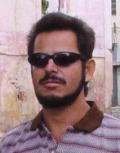

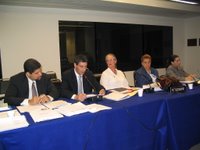
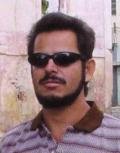
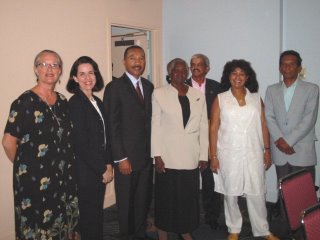

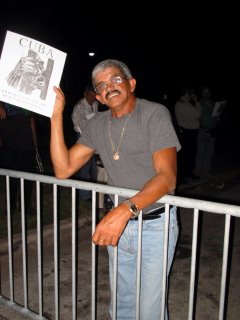 (ABOVE : Photo # 1: {left to right} Tanya Wilder, Laida Carro, Kwesi Mfume, María Luisa Abreu, Rodolfo Rodríguez San Román, Berta Mexidor, José Bridón / Photo #2: María Luisa Abreu, Manuela Calvo / Photo # 3: Rodolfo Rodríguez San Román, ex-political prisoner)
(ABOVE : Photo # 1: {left to right} Tanya Wilder, Laida Carro, Kwesi Mfume, María Luisa Abreu, Rodolfo Rodríguez San Román, Berta Mexidor, José Bridón / Photo #2: María Luisa Abreu, Manuela Calvo / Photo # 3: Rodolfo Rodríguez San Román, ex-political prisoner)

